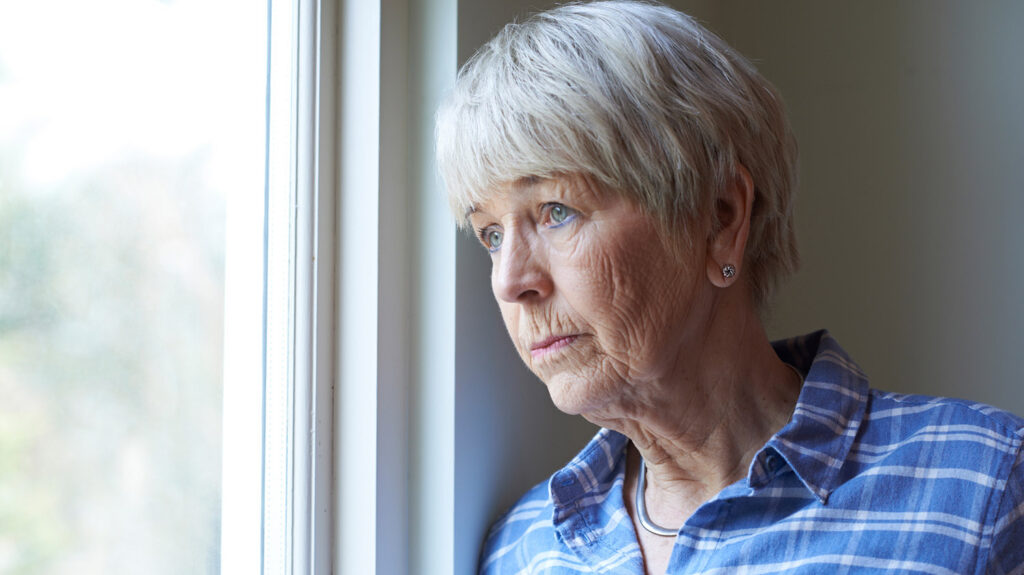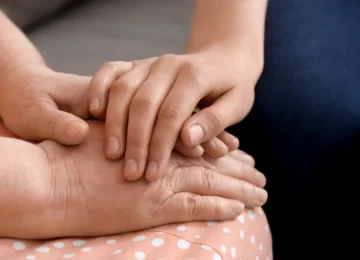Grieving During the Holidays

I asked a friend recently how she was coping with the death of her mother during the holidays. She said, “I’ve been so busy! Hardly a moment to think… and yet…I didn’t expect it to be so hard!”
She had anticipated the High Holidays and festivals following them would be rich with her family’s traditions. She prepared her kitchen and planned menus with her kids. It wasn’t until she got out a bowl that her mother always used for potato kugel that she started to cry. “I was a wreck for the rest of the night… isn’t that silly?”
I reassured her. Moments of celebration that are deep with meaning and family traditions are among the hardest to navigate during the holidays. This is true regardless of your faith tradition. These “milestone moments” are usually celebrated with friends and family. The loved one’s death will have an impact. And with the additional challenges of recovering from a COVID pandemic, it’s no wonder my friend found it difficult to just “keep smiling and carry on.”
When someone dies, there is a real loss of the person’s presence. But there are also some secondary losses that make things even more complicated. Secondary losses include these irreversible changes in family roles, religious observances, and more. This ripple effect creates additional stress on top of the grief you are feeling.
Litsa Williams of What’s Your Grief (http://whatsyourgrief.com) offers several reminders that I’ve found helpful as I talk with friends, family, and our JSSA Bereavement clients.
First, she states the plain, hard truth: Someone you love has died, and now the holidays will never be the same. Perhaps that sounds cold, but many times we are caught off-guard by simple things (like a bowl for the potato kugel). It impacts one’s ability to cope and enjoy the rest of the holiday.
Litsa also provides some other suggestions that many have found helpful:
- Music: Music is an essential part of holiday celebrations. Delegate someone to plan the songs you might listen to or sing. Especially if your loved one was the family musician, you’ll need reinforcements! Don’t abandon the music that reflects your cultural and religious heritage.
- Food: In my household, it’s the cookies. And the cakes. And the pies. And the potato rolls. And the bread… Midwestern women are extraordinary bakers! Pulling out my mom’s recipes for schaum tortes and shortbread was a bittersweet moment for me, but it was an important tradition to continue for my family.
- Stories: The good, the bad, and the ugly! Setting aside time to share stories allows the impact of one generation to continue to the next.
- Acts of Charity: As a family, perhaps you might choose to support an organization that is important to your loved one. For years, my parents supported a housing assistance program in my hometown. My siblings and I gave memorial gifts to this group for the first few years after my mom died.
More than anything else you choose to do, perhaps what is most important is what you decide not to do, at least in the first year following a death. Plan on having less emotional energy, time, and financial resources. Don’t bury your feelings but acknowledge them. There will be missteps and tears. As you get past the first-holiday celebration, the first birthday, and the first anniversary, it does get a little easier. These milestone moments are important to carry into the future with the memories you create today.



